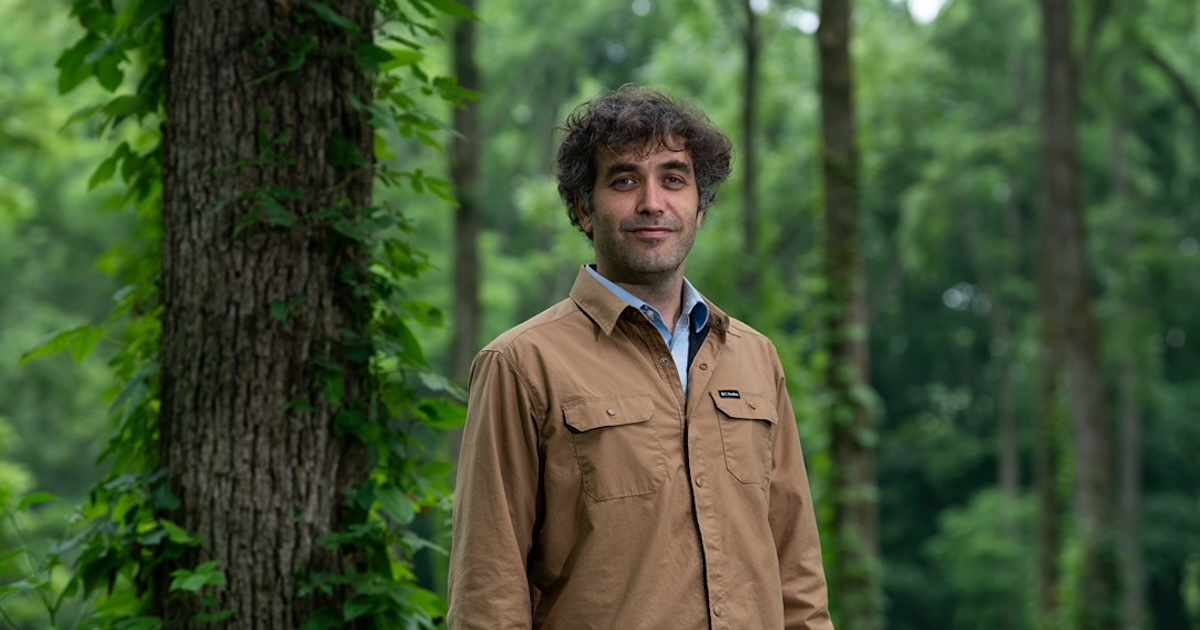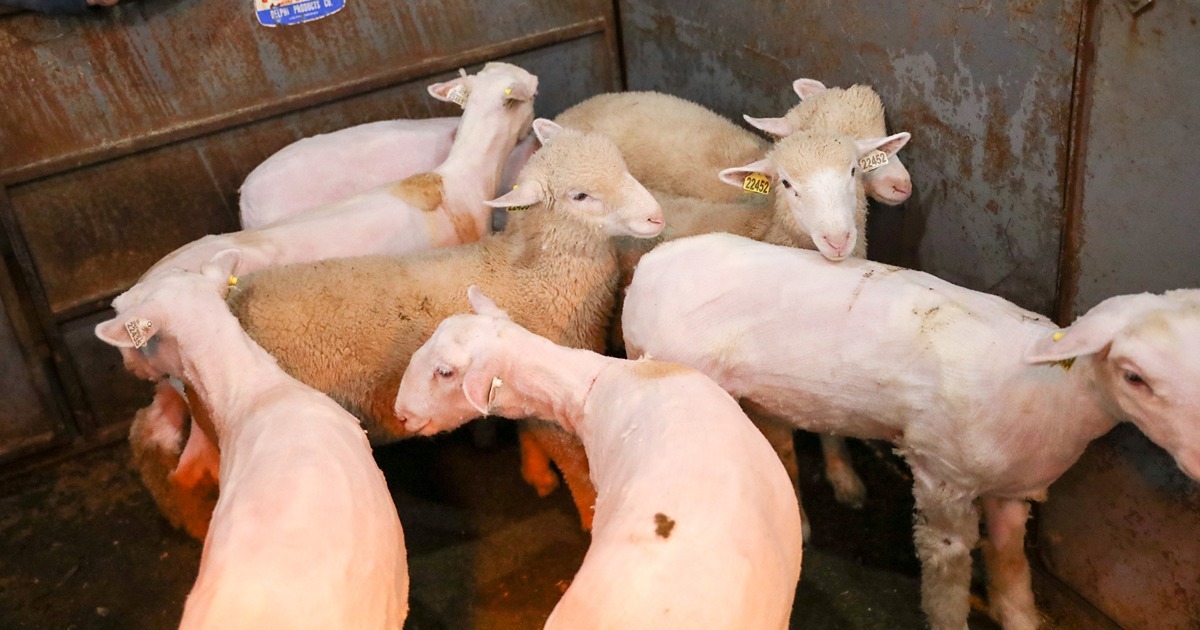Purdue Forestry and Natural Resources names chair in environmental sustainability
In this role, Bataille will lead an externally funded research program, mentor graduate students and postdoctoral research, partner with stakeholders to address pressing environmental challenges, and foster interdisciplinary integration of research and teaching across the department.
“This endowed chair was made possible by the generous gift of Richard and Suzanne Belcher and is aimed to broadly support research in environmental sustainability,” said Tomas Höök, department head of Forestry and Natural Resources. “Dr. Clément Bataille’s broad research interests — from butterflies to woolly mammoths, human forensics to river networks — collectively represent holistic themes in line with the vision of the Belcher Chair.”
Bataille comes to Purdue from the University of Ottawa, where he served as an associate professor in the Department of Earth and Environmental Sciences with a cross-appointment in the Department of Biology. He also directed the Jan Veizer Stable Isotope Core Facility, which specializes in stable isotope analysis. During his tenure, Bataille taught courses in isotope geochemistry and the carbon cycle while advancing his internationally recognized research.
“Isotopes are versions of a given element and make up the very fabric of everything from our bodies to the air we breathe — they hold a virtually untapped source of information in forestry and natural resources,” Bataille said. “For example, they can be used to trace the mobility, migration and connectivity of wildlife and pests, providing means to manage population and pest in agriculture and forestry. They can also serve to authenticate the provenance of agricultural products, identifying poached animals and products.”
With a bachelor’s and master’s in agricultural engineering and agronomy from the Institut National Polytechnique de Toulouse, a master’s in environmental sciences from the Université Paul Sabatier and a PhD in geology and geophysics from the University of Utah, Bataille’s research uses stable isotopes to tackle a variety of sustainability challenges — from migratory species population conservation and management to northern ecosystems and biogeochemical cycles monitoring.
“While isotope geochemistry has been created by geologists to understand Earth’s history, as an interdisciplinary trained scientist, I became excited about the potential of using isotopes to solve sustainability challenges and manage natural resources,” Bataille explained. “My main focus is to expand the development of isotopic tools in forestry and natural resources, particularly by demonstrating their potential in tracing the connectivity of migratory species like insects and birds.”
Bataille continued: “Migratory insects can be major pests or vectors of diseases, like spruce budworms that defoliate the boreal forest or leafhoppers that destroy strawberry fields. Similarly, migratory insects can play major ecosystemic roles as pollinators. Yet, we have no tools to track them and understand where they come from. Isotopes bring some unique solutions to this issue, considerably improving the management and forecasting of those migratory population with critical roles in ecosystems, agriculture and health.”
Bataille also addresses more ancient species, working with museum collections of fossils and bones of extinct species to investigate the drivers of extinction, such as past climate changes and human impacts. This research provides key insights for implementing better conservation strategies for our sustainable future.
He has published over 72 peer-reviewed articles, with seven more in review. One of his most recent articles was featured on the cover of Science this past May. It examines how climate change between glacial and interglacial periods altered horse movement and population dynamics in North America.
Bataille was drawn to Purdue for its land-grant mission and strong commitment to integrating community engagement into both research and teaching.
“The Department of Forestry and Natural Resources, along with the Belcher Chair, offers an ideal setup to take my research to new heights. I’m excited to leverage the resources of the Belcher Chair to develop large-scale and highly visible research,” Bataille said. “I’m also grateful to join a department with world-class expertise and infrastructure dedicated to developing solutions for natural resources management. It’s an honor to be a part of the Boilermaker family, serving the community through the land-grant mission.”
“We are excited to have Dr. Bataille join us in the Department of Forestry and Natural Resources and look forward to collaborating with him across our mission areas to address complex environmental challenges,” Höök said.
Additional information about the Richard and Suzanne Belcher Endowed Chair in Environmental Sustainability can be found here.
About Purdue Agriculture
Purdue University’s College of Agriculture is one of the world’s leading colleges of agricultural, food, life and natural resource sciences. The college is committed to preparing students to make a difference in whatever careers they pursue; stretching the frontiers of science to discover solutions to some of our most pressing global, regional and local challenges; and, through Purdue Extension and other engagement programs, educating the people of Indiana, the nation and the world to improve their lives and livelihoods. To learn more about Purdue Agriculture, visit this site.
About Purdue University
Purdue University is a public research university leading with excellence at scale. Ranked among top 10 public universities in the United States, Purdue discovers, disseminates and deploys knowledge with a quality and at a scale second to none. More than 106,000 students study at Purdue across multiple campuses, locations and modalities, including more than 57,000 at our main campus locations in West Lafayette and Indianapolis. Committed to affordability and accessibility, Purdue’s main campus has frozen tuition 14 years in a row. See how Purdue never stops in the persistent pursuit of the next giant leap — including its integrated, comprehensive Indianapolis urban expansion; the Mitch Daniels School of Business; Purdue Computes; and the One Health initiative — at https://www.purdue.edu/president/strategic-initiatives.
Media contact: Devyn Ashlea Raver, draver@purdue.edu
Sources: Clément P. Bataille, cbataill@purdue.edu
Agricultural Communications: Maureen Manier, mmanier@purdue.edu, 765-494-8415





